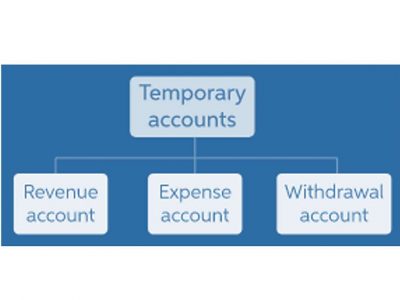Trust Accounting Management California Lawyers Association

If you’re looking for software to manage the complexities of trust accounting, ensure it includes all the essential features you need. The right tool can streamline your workflow and ensure compliance with attorney trust account rules. You should deposit any funds received on behalf of a client that aren’t immediately earned or allocated to cover expenses. Personal or the firm’s operating funds should never be mixed with client trust account funds. Client trust accounts are used to manage funds that belong to clients, such as advance fee deposits, settlement proceeds, and other client funds that require safekeeping.
Finalizing an Estate: Crafting the Closing Letter to Beneficiaries
- For example, in property management, using trust accounts can help separate tenant payments and security deposits from the business’s operating funds.
- By avoiding these common pitfalls, you can ensure compliance with attorney trust account rules and maintain proper trust accounting practices.
- Maintaining confidentiality and privacy in trust accounting and reporting is crucial to protect sensitive information related to trust beneficiaries, assets, and transactions.
- Legal trust accounting software can help you to ensure you’re checking the To “Do’s” boxes while avoiding the “Don’ts.” The right software solution allows you to manage all of your firm’s trust bookkeeping in real time.
- This setup offers considerable tax benefits and protection against creditors.
- However, the trustee is obligated to follow the instructions of the document that established the account in trust.
- Failure to keep the beneficiaries reasonably informed can expose the trustee to liability.
The trustee should also act to avoid even the mere appearance of impropriety. In the past, trustees were governed by the “Prudent Man Rule,” which held that trust investments were considered imprudent or prudent on an individual security basis. This led to trustees investing primarily in high-quality blue- chip stocks and investment-grade bonds and a focus merely on selecting high-quality individual investments. Mr. and Mrs. Q. Sample are school teachers with a goal to retire in 15 years. Hoping to secure their assets and create college funds for their grandchildren, they explore accounts in trust as options. They can invest the funds, withdraw money—within limits—for the minor’s care and needs.

Navigating Trust Account Challenges: How to Maintain Cleanliness and Order
Compliance with legal and regulatory requirements is critical to safeguarding trust assets, protecting beneficiary interests, and maintaining professional integrity. These features may include automated transaction tracking, reconciliation tools, customizable reporting, and compliance management functions, which help ensure accuracy, efficiency, and compliance in trust management. Below are a few more tips your law firm can consider to help improve assets = liabilities + equity your trust accounting system. To help you get started, we put together a simple trust accounting template. Adjust the template to comply with your firm’s trust accounting process and local regulations.
Our Team Will Connect You With a Vetted, Trusted Professional
Trusts are legal arrangements in which a person, called a trustee, holds and manages assets on behalf of beneficiaries, who will eventually receive the assets or income generated by them. Each state also has different rules—some states even have rules that get further segmented by county. Hence, you must dig deep into what is expected of the attorney and the law firm. You would write a check out of the trust bank account and book it into the client sub-ledger.
- A refinance escrow account, much like a purchase escrow account, holds fees related to the transaction, which, in this case, is the refinance of a home.
- You should establish your firm’s trust account with the expectation that overdraft fees will never be an issue.
- For many law firms, the management of Trust Accounts is a major administrative task.
- At SurePoint, we understand the importance of trust accounting in the legal profession.
- Any assets transferred into the trust account belong to the client and must be managed on their behalf.
Just as it would be wrong to report deposits into a client’s checking account as your own income, it is equally wrong to do so with a lawyer trust account. Your responsibility as an attorney is to manage the trust, not to claim ownership of the assets placed there. You must maintain a strict separation between trust assets and your own assets, including when reporting income.
Inaccurate or Incomplete Records
It’s crucial for lawyers because it ensures that client funds are handled https://www.bookstime.com/ with integrity, transparency, and in accordance with legal and ethical standards. Proper trust accounting prevents commingling of funds, ensures accurate record-keeping, and maintains the trust and confidence of clients. Compliance with trust accounting rules is also a requirement of state bar associations, making it essential for legal practice and the avoidance of disciplinary actions. Trust accounting is governed by strict regulations to ensure transparency and protect client funds.

Benefits of an Account in Trust
This guide will provide you with the knowledge and tools needed to manage trust accounts proficiently. Adhering to these steps not only ensures compliance with legal regulations but also builds trust with your clients, demonstrating your firm’s commitment to ethical practice and financial responsibility. By following best practices and leveraging technology designed for trust accounting, law firms can maintain the highest level of client trust and financial responsibility. In this quick reference guide, we delve into the details of trust accounts, why they are essential, and how to manage them effectively. The key principles of trust accounting and reporting include fiduciary responsibility, accurate record-keeping, segregation of trust funds, and compliance with legal and regulatory requirements.

By leveraging tools like RunSensible, law firms not only streamline their financial operations but also underscore their commitment to ethical practice and client service. This technological embrace, therefore, represents not just an operational upgrade but a strategic investment in the firm’s reputation and client relationships. Another common violation of attorney trust account rules is blending client trust account funds with your own business accounts. For example, ‘earned funds’—money that an attorney has earned for services rendered—should not remain in the trust account.
Method 1: Pay Client Expenses From the Trust Account

As a property manager, you must adhere to legal requirements, which often include regular audits, accurate record-keeping, and timely reporting. Compliance involves maintaining clear separation between trust and operational accounts, ensuring all transactions are properly documented. Failure to follow these regulations can result in legal penalties and damage your professional reputation, highlighting the importance of meticulous trust account trust accounting for lawyers management.

